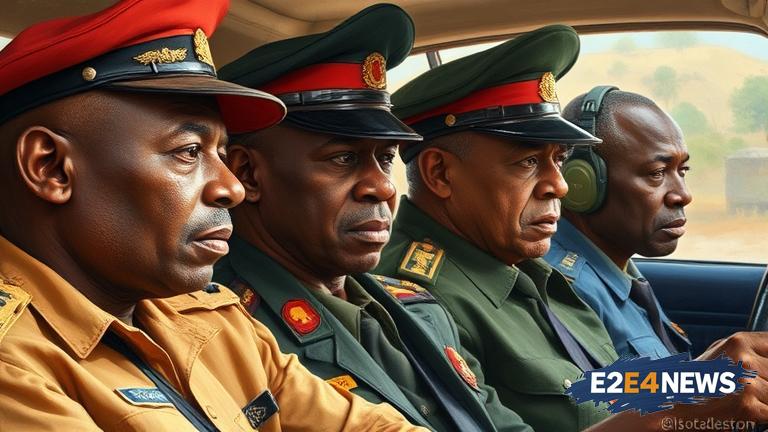A recent scandal has rocked Zimbabwe, involving war veterans who have been accused of receiving cars and bribes in exchange for their support. The scandal has sparked widespread outrage and calls for accountability, with many questioning the government’s role in the affair. According to reports, the war veterans were given cars and other gifts in exchange for their loyalty and support, raising concerns about corruption and abuse of power. The scandal has also highlighted the struggles faced by war veterans in Zimbabwe, who have long complained about being neglected and marginalized by the government. Despite their sacrifices during the country’s liberation struggle, many war veterans have been left to struggle with poverty and unemployment. The government has promised to investigate the scandal and take action against those responsible, but many are skeptical about the likelihood of meaningful change. The scandal has also sparked debate about the role of war veterans in Zimbabwean politics, with some arguing that they have been used as pawns by the government to maintain power. Others have called for greater recognition and support for war veterans, who have made significant contributions to the country’s history and development. The scandal has also raised questions about the government’s priorities, with many arguing that the funds used to buy cars and bribes could have been better spent on supporting war veterans and addressing their needs. As the scandal continues to unfold, it remains to be seen whether the government will take meaningful action to address the concerns of war veterans and the wider public. The incident has also sparked concerns about the impact of corruption on Zimbabwe’s economy and society, with many arguing that it is undermining trust in institutions and hindering development. The government has faced criticism for its handling of the scandal, with some arguing that it has been slow to respond and has failed to provide adequate transparency and accountability. The scandal has also highlighted the need for greater transparency and accountability in government, with many calling for reforms to prevent similar incidents in the future. In addition, the scandal has sparked debate about the role of the media in Zimbabwe, with some arguing that it has played a crucial role in exposing corruption and holding those in power to account. Others have called for greater support for independent media outlets, which have faced challenges and intimidation in their efforts to report on the scandal. The incident has also raised questions about the impact of social media on Zimbabwean politics, with many arguing that it has provided a platform for citizens to express their views and mobilize around issues of concern. As the scandal continues to unfold, it is likely to have significant implications for Zimbabwean politics and society, with many calling for greater accountability and transparency from the government. The government has faced pressure to take action against those responsible for the scandal, with many arguing that it is essential to restore trust and confidence in institutions. The scandal has also sparked concerns about the impact on Zimbabwe’s international reputation, with many arguing that it is undermining the country’s efforts to attract investment and promote economic development. In response to the scandal, the government has announced plans to establish a commission of inquiry to investigate the allegations and make recommendations for reform. The commission is expected to be chaired by a retired judge and will include representatives from civil society and other stakeholders. The government has also promised to take action against those found to be responsible for the scandal, including the seizure of assets and prosecution of individuals involved. However, many are skeptical about the likelihood of meaningful change, given the government’s history of failing to address corruption and abuse of power. The scandal has also highlighted the need for greater support for war veterans, who have made significant contributions to Zimbabwe’s history and development. Many have called for greater recognition and support for war veterans, including the provision of pensions, housing, and other benefits. The government has faced criticism for its handling of war veterans’ affairs, with many arguing that it has failed to provide adequate support and recognition for their sacrifices. As the scandal continues to unfold, it is likely to have significant implications for Zimbabwean politics and society, with many calling for greater accountability and transparency from the government.
